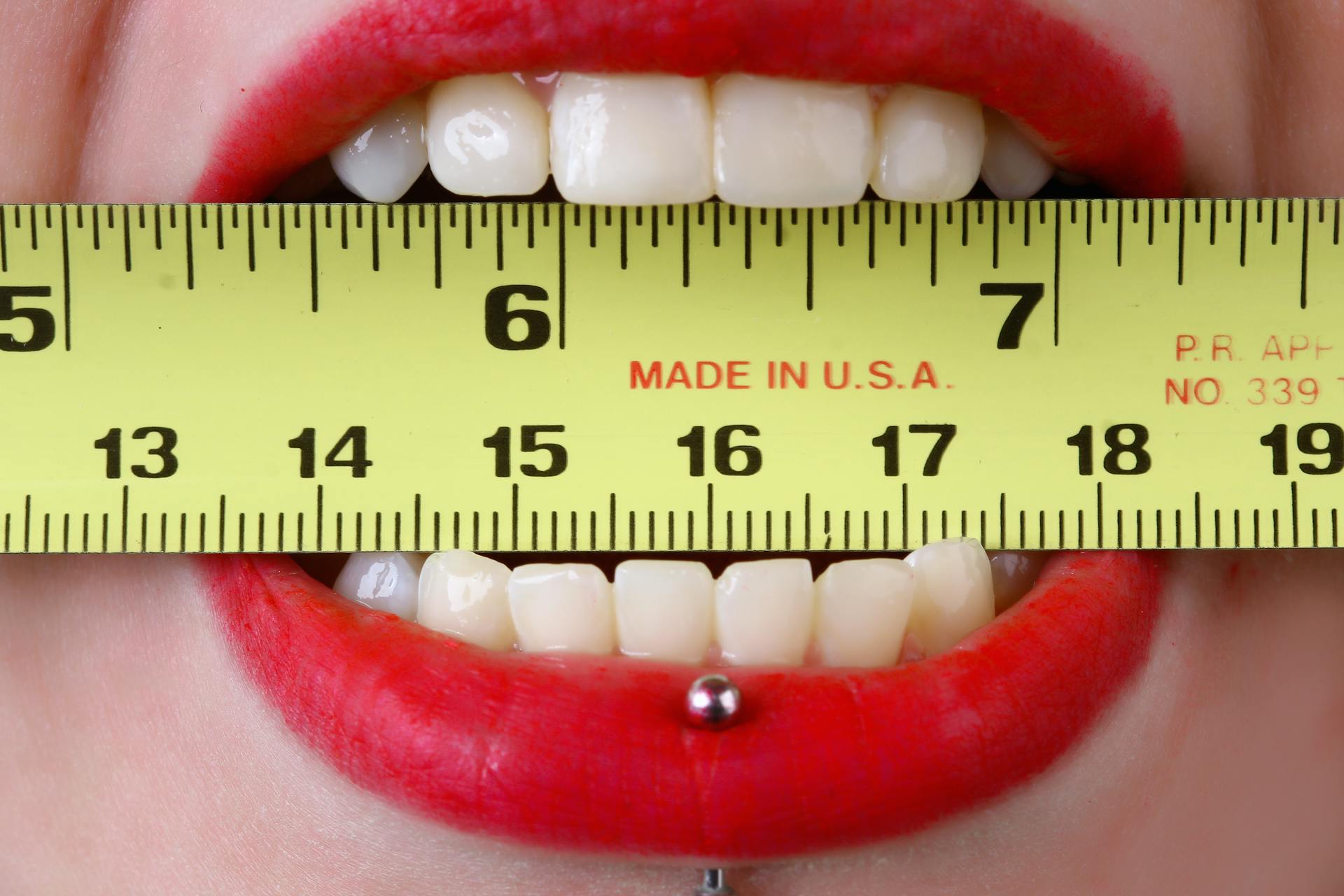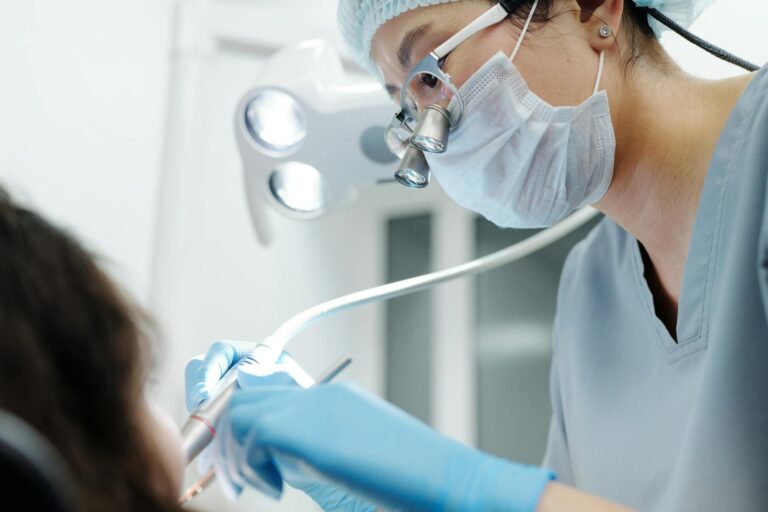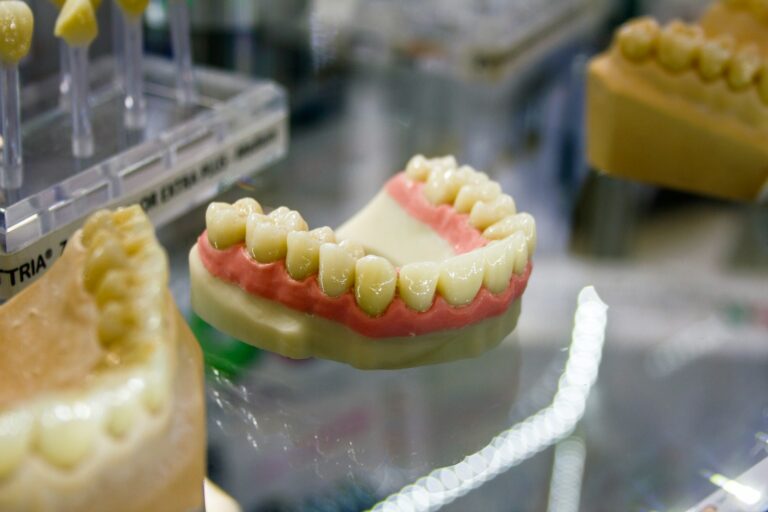
Receiving dental implants can truly be a transformative experience, as it restores both function and confidence to one’s smile. It is important to understand the healing process to achieve a successful outcome.
This article will examine what occurs right after implant surgery, how long does it take to heal after getting dental implants, and the various factors that can influence the healing time.
Additionally, we will discuss the signs that indicate a successful healing process and provide tips for accelerating recovery, ensuring that you maximise the results of your investment in oral health.
What Is the Healing Process for Implants?

The healing process for dental implants is a crucial phase that starts right after implant surgery and continues for several months. By understanding this process, patients can set realistic expectations for their recovery period, which consists of several stages of healing.
One key stage is osseointegration, where the dental implant integrates with the jawbone. Factors such as bone quality, overall patient health, and compliance with post-operative care can greatly affect this timeline. Therefore, it is vital to adhere to all instructions given by your dental professional to achieve the best possible outcomes.
What Happens Immediately After Implant Surgery?
Immediately following implant surgery, patients should anticipate some swelling, bruising, and discomfort at the surgical site. These reactions are typical after oral surgery.
Effective pain management is an essential aspect of post-operative care, and dental professionals often suggest medications to help alleviate discomfort. It is important for patients to keep an eye on their symptoms and communicate any significant changes during their recovery period.
Using ice packs on the cheeks during the first 24 hours can be quite beneficial in reducing swelling. Additionally, over-the-counter painkillers or prescribed medications can provide further comfort.
Adhering to the recommended post-operative care instructions is crucial, as it not only promotes the healing process but also helps prevent potential complications. Patients should refrain from engaging in strenuous activities and maintain a soft diet to minimise pressure on the affected area.
Following these guidelines will contribute to a smoother recovery and improve overall oral health, allowing patients to more easily resume their normal routines.
How Long Does It Take for the Implants to Fuse with the Jawbone?
The process by which dental implants fuse with the jawbone, known as osseointegration, generally takes between three to six months. This healing period can be influenced by several factors, including the patient’s age, overall health, and the quality of the bone at the implantation site. Maintaining proper oral hygiene and adhering to the dental professional’s instructions can significantly enhance the osseointegration process.
During this critical healing phase, it is vital for patients to recognise the importance of regular monitoring of bone health. Attending all scheduled follow-up appointments allows dental professionals to assess the progress of osseointegration and promptly address any potential complications. Additionally, lifestyle choices—such as smoking or poor nutrition—can negatively impact healing, underscoring the necessity for individuals to adopt healthy habits.
By establishing a consistent oral hygiene routine and proactively managing their dental health, patients can positively influence the success of their implants, ultimately ensuring a more favourable long-term outcome.
What Are the Factors That Affect Healing Time?

Several factors can influence the healing time following dental implant surgery, which in turn impacts the overall success of the procedure.
Age and health status are particularly important; younger patients who are in good health typically enjoy a quicker recovery, whereas individuals with existing medical conditions may encounter complications.
Additionally, lifestyle choices, including smoking and dietary habits, can have a significant effect on the healing process. Therefore, it is essential for patients to embrace healthy practices during their recovery to promote optimal healing.
What Is the Quality of Bone and Tissue?
The quality of bone and tissue at the implant site is crucial for the success of dental implants, as it directly influences osseointegration and overall healing. Sufficient bone density is essential to support the implant; if deficiencies are present, procedures such as bone grafting may be necessary to improve tissue health and promote bone regeneration.
Dental professionals can utilise X-ray assessments to evaluate bone quality and develop a suitable plan for successful implant placement.
Inadequate bone density not only complicates the initial placement of implants but also prolongs healing times and raises the risk of implant failure. When bone quality is less than ideal, it may hinder the implant’s ability to integrate properly, potentially leading to the need for follow-up surgeries or additional treatments to ensure the implant’s stability.
Additionally, compromised tissue health can lead to inflammation or infection, which can further delay recovery and increase discomfort for the patient. By placing a strong emphasis on bone quality through thorough pre-operative assessments, dental teams can greatly enhance the healing process and improve long-term outcomes.
What Is the Patient’s Overall Health and Lifestyle?
A patient’s overall health and lifestyle choices play a crucial role in the healing process following dental implant surgery. Factors such as smoking, poor nutrition, and inadequate hydration can impede recovery and elevate the risk of complications.
By adopting healthier lifestyle changes—such as maintaining a balanced diet and ensuring proper hydration—patients can support their body’s healing process and promote successful integration of the implants.
Mental well-being is equally important, as stress and anxiety can negatively impact healing by weakening immune function. Engaging in regular physical activity, limiting alcohol consumption, and prioritising sufficient sleep can further enhance recovery.
Patients should consider incorporating nutrient-rich foods, such as leafy greens and lean proteins, into their daily meals to aid tissue repair. Moreover, fostering a supportive environment enriched with healthy relationships can contribute significantly to overall well-being and resilience during the recovery phase.
By embracing these positive lifestyle adjustments, individuals may not only expedite their healing journey but also enhance their long-term oral health outcomes.
How Well Does the Patient Follow Post-Operative Care Instructions?
Following post-operative care instructions is essential for ensuring a successful healing process after dental implant surgery. Patients usually receive detailed guidance on oral hygiene, pain management, and dietary modifications to support their recovery. Regular follow-up appointments with dental professionals play a critical role in monitoring progress and addressing any concerns that may arise during this period.
By adhering to these guidelines, patients can significantly enhance their body’s ability to heal efficiently while reducing the risk of complications, such as infection or implant failure.
Maintaining rigorous oral hygiene is particularly important, as keeping the surgical site clean helps prevent bacterial buildup. Effectively managing discomfort through prescribed medications can also contribute to a smoother recovery experience.
Additionally, attending all scheduled follow-up appointments is crucial for successful recuperation. These visits allow the dental team to assess the healing process, make any necessary adjustments, and ensure that the implants are integrating properly within the jawbone.
What Are the Signs of a Successful Healing Process?

Recognising the signs of a successful healing process after dental implant surgery is crucial for ensuring long-term success. Patients can anticipate experiencing minimal pain and swelling, which suggests that their body is responding positively to the procedure.
Additionally, healthy gum tissue surrounding the implant and proper fusion with the jawbone are encouraging signs that the healing process is on track. These indicators play a significant role in helping to prevent complications in the future.
Minimal Pain and Swelling
After undergoing dental implant surgery, experiencing minimal pain and swelling is a positive indication that the healing process is progressing as expected. While some discomfort is considered normal, it is important to be aware that excessive pain or swelling may signal potential complications, and this should be communicated to a dental professional promptly.
Implementing effective pain management strategies, which may include prescribed medications and home care techniques, can help alleviate discomfort during the recovery period.
Patients can generally expect mild to moderate pain in the initial days following the surgery, accompanied by some swelling around the implant site. It is essential to monitor these symptoms closely; typically, swelling peaks around 48 hours after the procedure and then begins to decrease.
For effective pain management, applying ice packs can help reduce inflammation, and adhering to prescribed pain relief options is advisable. Additionally, elevating the head while resting can further assist in minimising swelling.
If excessive pain persists beyond the initial healing phase or if swelling significantly worsens, it is crucial to consult with a dental professional. Early intervention can help prevent further complications and promote a smoother recovery.
Proper Fusion of Implants
The proper fusion of dental implants with the jawbone, a process referred to as osseointegration, is a key indicator of successful healing. During follow-up visits, dental professionals will evaluate the integration of the implant through physical examinations and X-rays, ensuring that the healing stages are advancing as anticipated. Successful osseointegration significantly contributes to the long-term durability of dental implants.
This process not only secures the implant in place but also plays a critical role in the overall success of the dental restoration. Assessing osseointegration during dental evaluations involves careful observation of bone density and stability around the implant site, which are essential indicators of effective integration.
Regular check-ups are crucial for patients, as these appointments facilitate the timely identification of any potential complications and allow dentists to monitor the healing progress. By prioritising these visits, patients can ensure a smoother transition to a fully functional and aesthetically pleasing smile.
Healthy Gum Tissue
Healthy gum tissue surrounding dental implants serves as an important indicator of the healing process. When the gums heal properly, it signifies that the body is accepting the implant, thereby reducing the risk of complications, such as infections. To support gum health during recovery and ensure long-term success, it is essential to maintain good oral hygiene practices.
Establishing a routine that includes regular brushing and flossing is crucial for promoting gum health. This helps minimise plaque buildup and keeps harmful bacteria at bay.
Signs of healthy gums typically include a pink colour, firmness, and minimal bleeding during brushing. It is important for individuals to monitor their gum condition and consult a dental professional if they notice any signs of swelling, persistent redness, or unusual sensitivity.
Such symptoms may indicate underlying issues that could require prompt attention, allowing for timely intervention and the prevention of further complications.
How Long Does It Take to Fully Heal After Getting Implants?

The complete healing time after receiving dental implants can vary significantly from one patient to another, generally taking between three to six months for osseointegration and full recovery.
Several factors can influence this timeline, such as individual healing rates, bone density, and how well patients follow post-operative care instructions.
Therefore, it is essential for patients to recognise that their recovery period may differ depending on these circumstances.
Typical Healing Time for Dental Implants
The healing process for dental implants typically consists of several stages, with osseointegration generally taking between three to six months. During this time, it is important for patients to attend follow-up appointments to monitor their healing and address any concerns that may arise. Adopting recovery tips such as resting and maintaining excellent oral hygiene can significantly enhance the outcomes of healing.
In the initial stage, which lasts a few days, patients may experience swelling and discomfort at the surgical site. It is crucial to adhere to the doctor’s advice regarding pain management and dietary modifications during this period.
As osseointegration progresses—typically within the first few weeks—patients may begin to notice improvements in their comfort levels. This is often the time when they can gradually transition back to a regular diet, while still steering clear of tough or sticky foods.
By the end of the three-month period, individuals can expect to see considerable improvement in stability, making it possible to consider the placement of the final crown. However, patience is essential, as complete integration may still require additional time.
Incorporating gentle oral care practices and avoiding strenuous activities can also greatly support the healing process.
Factors That Can Delay Healing Process
Several factors can delay the healing process after dental implant surgery, potentially affecting the success of the procedure. Issues such as poor oral hygiene, smoking, insufficient nutritional support, and pre-existing medical conditions can all slow down recovery times. It is important to identify and address these factors early on to promote optimal healing.
Plus maintaining strict oral hygiene practices, patients are encouraged to adopt a balanced diet that is rich in vitamins and minerals, as these nutrients play a crucial role in tissue repair and immune function.
Furthermore, high levels of stress can interfere with the healing process, making it essential to engage in relaxing activities and ensure adequate rest. For those who smoke, considering cessation is highly advisable, as tobacco use significantly restricts blood flow, which is vital for recovery.
Attending follow-up appointments can also be beneficial for individuals, as dental professionals can monitor healing progress and provide personalised guidance to effectively navigate these challenges.
How to Speed Up the Healing Process
To enhance the healing process following dental implant surgery, patients can adopt several effective strategies. Staying hydrated and adhering to a balanced diet that is rich in nutrients are essential steps.
Additionally, maintaining a proper oral care routine that emphasises cleanliness and minimises the risk of infection is critical. Engaging in gentle physical activity, as recommended by a dental professional, can also aid in promoting overall health during the recovery period.
It is important for individuals to prioritise foods that are high in vitamins and minerals, such as leafy greens, lean proteins, and whole grains, as these significantly contribute to tissue healing. Keeping hydration levels adequate not only supports recovery but also helps maintain moisture in the mouth, facilitating the healing process.
Establishing a consistent oral care routine that includes gentle brushing and antiseptic mouth rinses can further help prevent complications.
Being well-informed about the healing process and working closely with dental professionals give the power tos patients to make knowledgeable decisions regarding their care, ensuring a smoother and more effective recovery journey.
What Can Affect the Long-Term Success of Implants?

Several factors can influence the long-term success of dental implants, which makes it crucial for patients to take proactive steps.
Maintaining good oral hygiene practices is essential in preventing complications such as oral infections and in ensuring the durability of the implants.
Additionally, lifestyle choices—such as smoking and effectively managing pre-existing medical conditions—also play significant roles in preserving dental health and prolonging the lifespan of the implants.
Poor Oral Hygiene
Maintaining good oral hygiene is vital for individuals with dental implants, as neglecting this aspect can lead to serious complications that jeopardise the long-term success of the implants. Inadequate cleaning can result in oral infections and peri-implantitis, conditions that threaten the integrity of the implant.
Therefore, it is essential to establish an effective oral care routine to ensure the longevity and durability of dental implants.
To achieve this, individuals should follow a comprehensive oral hygiene regimen. This includes:
- Regular brushing with a soft-bristled toothbrush and fluoride toothpaste
- Daily flossing to eliminate plaque build-up around the implant
- Using an antibacterial mouthwash to help further reduce harmful bacteria in the mouth
Regular dental check-ups are also crucial; patients should plan to visit their dentist at least twice a year for professional cleanings and evaluations to monitor the health of their implants.
If any unusual symptoms occur, such as swelling or discomfort around the implant area, it is advisable to seek immediate professional guidance. Addressing these concerns promptly can help prevent more serious issues from developing.
Smoking
Smoking significantly hinders the healing process following dental implant surgery, heightening the risk of complications and threatening the long-term success of the implants. It can restrict blood flow and negatively affect tissue health, making it challenging for the body to heal as needed. Consequently, for patients aiming to ensure the success of their dental implants, quitting smoking is a crucial step.
The harmful chemicals present in cigarettes can slow down bone integration, which is vital for the stability of the implants. Smokers face an elevated risk of infections and prolonged inflammation, complicating the healing process even further.
This underscores the importance of utilising support systems, such as counselling or cessation programmes, to assist individuals in their efforts to quit. Adopting a smoke-free lifestyle not only facilitates the healing of surgical sites but also improves overall oral health, reduces the likelihood of gum disease, and enhances the longevity of dental work, ultimately leading to a brighter and healthier smile.
Medical Conditions and Medications
Certain medical conditions and medications can have a significant impact on the healing process and the long-term success of dental implants. For example, conditions such as diabetes and autoimmune disorders can hinder tissue regeneration and osseointegration. Additionally, some medications may interfere with healing, which makes it crucial for patients to discuss their health history and current medications with their dental professional before undergoing surgery.
By being open about their overall health and any medications they are taking, patients enable their dental team to customise the treatment plan effectively. For instance, individuals on blood thinners might need special precautions to minimise bleeding during and after the procedure. Those with chronic conditions may benefit from extra follow-up care to create an optimal healing environment.
In essence, maintaining strong communication between patients and dental professionals not only builds trust but also enhances the chances of successful implant integration and recovery, ultimately leading to long-lasting results.
Complications During Surgery
Complications that may arise during implant surgery can negatively affect both the recovery process and the long-term success of dental implants. Issues such as improper implant placement or excessive bleeding can lead to delayed healing and increased discomfort.
Therefore, it is crucial for patients to engage in diligent monitoring and maintain open communication with their dental professionals to address any concerns as they arise.
Patients should be aware of potential complications like infection or nerve damage, which can significantly complicate their recovery timeline. These issues not only impede healing but may also necessitate additional procedures, highlighting the importance of attentive post-operative care.
This care includes adhering to prescribed aftercare instructions, attending follow-up appointments, and possibly adjusting daily routines to promote faster recovery.
By being vigilant and monitoring for any unusual symptoms or discomfort, individuals can enhance their chances of a successful outcome and enjoy the long-term benefits that dental implants offer.
Frequently Asked Questions
How long does it take to heal after getting dental implants?
The healing time after getting implants can vary depending on the individual and the type of implant. Generally, it can take anywhere between 3-6 months for the implants to fully connect with the jawbone and for the healing process to be completed.
What factors can affect the healing time after getting implants?
The healing time after getting implants can be influenced by various factors such as age, overall health, oral hygiene, and the location of the implant placement. Smokers may also have a longer healing time as smoking can delay the healing process.
Is there anything I can do to speed up the healing process?
Yes, there are several things you can do to promote faster healing after getting implants. These include following proper post-operative care instructions, maintaining good oral hygiene, and avoiding activities that can disrupt the healing process, such as smoking and consuming hard or sticky foods.
What are some common signs of a successful healing process after getting implants?
Some common signs of successful healing after getting implants include minimal discomfort, no signs of infection or swelling, and the ability to eat and speak comfortably without any issues. It is essential to attend follow-up appointments with your dentist to monitor the healing process.
What should I do if I experience excessive pain or swelling during the healing process?
It is normal to experience some discomfort and swelling after getting implants, but if you are in severe pain or notice excessive swelling, it is best to contact your dentist immediately. They will be able to assess the situation and provide appropriate treatment if necessary.
How can I ensure a successful healing process after getting implants?
To ensure a successful healing process, it is crucial to follow all post-operative instructions given by your dentist. This includes taking any prescribed medication, maintaining good oral hygiene, and attending follow-up appointments. It is also essential to avoid any activities or habits that can disrupt the healing process.






